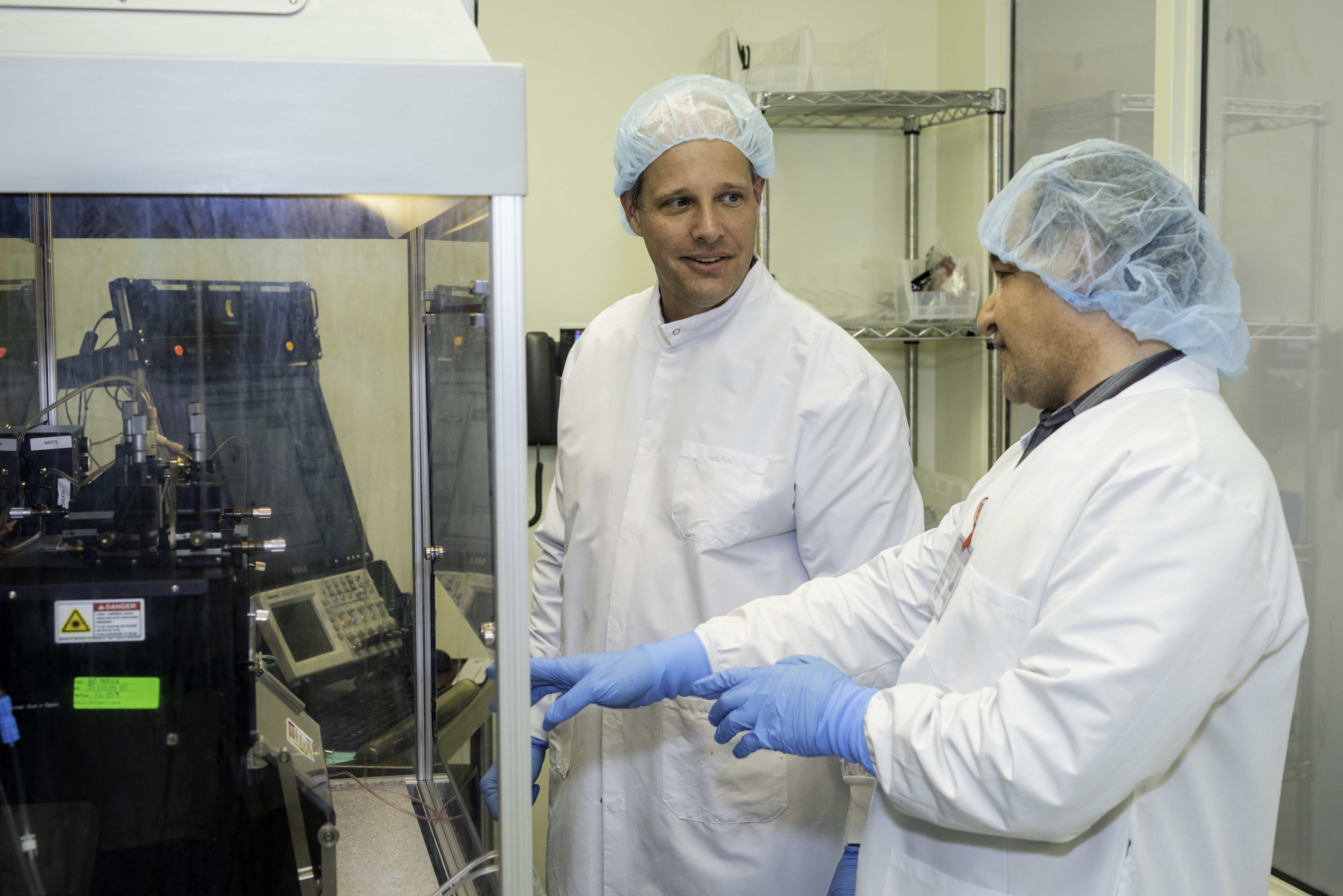
Everett Meyer, MD, PhD
Teaching Tolerance to the Immune System
A Q&A with Everett Meyer

Everett Meyer, MD, PhD
Teaching Tolerance to the Immune System
A Q&A with Everett Meyer
A healthy immune system is in a constant state of vigilance, patrolling the human body for invading pathogens and mounting a quick response against dangerous bacteria or viruses. But what happens when that immune response is unwanted? After a sick patient receives a lifesaving transplant, the immune system can attack the new organ, triggering transplant rejection. In people with autoimmune conditions like rheumatoid arthritis and lupus nephritis, the immune system attacks healthy cells, causing disease. In both cases, clinicians want to block the immune response — but without shutting off the entire immune system.
Researchers and clinicians in the bone and marrow transplantation and cellular therapy division are developing and testing new methods of cellular immune tolerance — techniques to reprogram the immune system to be more tolerant of healthy cells and transplanted organs. This kind of renewal of the healthy immune system offers hope for patients who have long had few options. Physician-scientist Everett Meyer, MD, PhD, who has been studying cellular immune tolerance for more than a decade, recently answered some questions about how these breakthroughs are impacting Stanford Medicine patients.
Doctors have been trying to prevent organ rejection and to treat autoimmune disease for a long time. What’s changed in recent years?
In the past decade, we’ve had an incredible amount of advancement in our basic understanding of the immune system. Scientists have developed extremely powerful new techniques that let us see at a very deep level how individual immune cells function. At the same time, we also have new ways to reprogram those immune cells using genetic tools. The success of cancer immunotherapy, which reprograms immune cells to attack cancer cells, has paved the way for us. Now, we’re expanding those same approaches used to prevent organ rejection and treat autoimmune disease in completely new ways.
How are clinicians at Stanford Medicine applying these breakthroughs to organ transplants?
Right now, by really pushing the frontiers of how we prevent organ rejection. We can reengineer immune cells and transplant them into patients at the same time they receive a new organ. This has the potential to allow patients to completely stop taking standard immunosuppression drugs that shut down the immune system. We have a large California Institute of Regenerative Medicine grant to study whether patients can be weaned completely off immunosuppressants if they receive a bone marrow transplant and cell cultured immune cells at the same time as a kidney transplant.

The success of cancer immunotherapy, which reprograms immune cells to attack cancer cells, has paved the way for us.
How are clinicians at Stanford Medicine applying these breakthroughs to organ transplants?
Right now, by really pushing the frontiers of how we prevent organ rejection. We can reengineer immune cells and transplant them into patients at the same time they receive a new organ. This has the potential to allow patients to completely stop taking standard immunosuppression drugs that shut down the immune system. We have a large California Institute of Regenerative Medicine grant to study whether patients can be weaned completely off immunosuppressants if they receive a bone marrow transplant and cell cultured immune cells at the same time as a kidney transplant.
What does this mean for patients in terms of their quality of life?
For most of history, patients who received organ transplants had to take immunosuppressant pills for the rest of their life. This leads to a lot of long-term side effects — not only are you more prone to getting sick, but you can get secondary cancers, diabetes, and hypertension. In some cases, the immunosuppression can actually end up damaging the new organ that you’re trying to protect. What’s more, even when immunosuppression is effective, the organ is often rejected after 15 or 20 years. Patients who get transplants when they’re young usually plan to get another one or two organs over their life span.
With the new cell therapies we’re testing, patients can get one organ transplant that lasts for life, and they won’t have to take immunosuppressants forever. This means far fewer long-term side effects, as well as not having the burden of daily pills.
Are you also expanding these therapies for autoimmune disease?
Yes, some of the same approaches that are being used to treat B cell cancers can be repurposed to treat autoimmune diseases, because in both cases, you have faulty B cells. Right now, we’re planning a trial that will test these therapies in lupus nephritis and multiple sclerosis. We’re also involved in a large, national trial that’s planning to treat multiple sclerosis with bone marrow transplants, and we are working with a company developing cell therapy for rheumatoid arthritis. In all these cases, we’re using molecular tools to reeducate the immune system to stop responding to things that it shouldn’t be responding to. For our patients, having access to these trials, which offer a completely new paradigm of treating autoimmune disease, is incredibly valuable.
Why is Stanford such an ideal place to be studying this?
Stanford has taken an innovative stand in terms of bringing together all the different players in cellular immune tolerance into one program. We are among the leading centers in the world when it comes to studying human immunology, and we have a rich history of being innovators in transplantation. In addition, we have this entrepreneurial culture and collaborative environment that fosters the development of these kinds of completely new approaches to medicine. All these things come together to make Stanford uniquely positioned to really advance the field of cellular immune tolerance.
